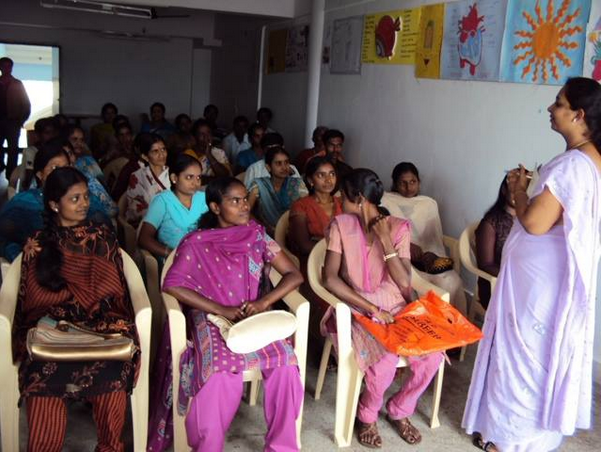 Will Poole, a top Microsoft executive-turned seed-stage investor, is tapping American and Indian tech entrepreneurs to back some not very non-techy startups in India.
Will Poole, a top Microsoft executive-turned seed-stage investor, is tapping American and Indian tech entrepreneurs to back some not very non-techy startups in India.
Late last year, he closed his $20 million Unitus Seed Fund with a limited-partners list that included an array of startup founders, including the original success story:Bill Gates.
Unitus has taken early stakes in 16 for-profit startups providing health, education and livelihoods, for Indian families living on less than $10 a day. Many of the ventures are decidedly un-digital, such as chains of dental clinics and pre-school, while others are digitally enabled, such as mGaadi, an “Uber for rickshaws” to boost incomes in Bangalore.
The Microsoft co-founder put his prestige as well as his checkbook to work with a statement of support for Unitus’ model. “Impact investing is a powerful model with the potential to build markets and drive change for the people who need it most,” Gates said in the statement.
Unitus invests on the thesis that entrepreneurs providing valuable goods and services optimized for lower-income Indians can reach high volumes because of pent-up consumer demand in underserved markets.
“There’s a very large, growing and increasingly affluent market among the masses in India,” Poole says. “Companies that target those customers well, that know their needs, and that learn how to meet those needs are going to be valuable companies.”
With headquarters in Seattle and Bangalore, Unitus in its first year has made 16 investments, generally between $100,000 and $250,000, in companies such as Smile Merchants, which operates low-income dental clinics near Mumbai, and Hippocampus Learning Centers, a network of private kindergartens serving more than 6,000 rural and low-income students.
Poole worked his connections from 13 years as a top manager at Microsoft while partner, Dave Richards, a former executive at Real Networks, tapped other networks. They attracted executives at Amazon and Microsoft, as well as 15 Indian nationals and more than a dozen non-resident Indians, most of whom had not previously made an “impact” investment. Unusually, almost all of the investors have been willing to be publicly identified, to encourage other successful entrepreneurs to consider impact investments.
A few, such as legendary venture-capitalist Vinod Khosla, eschew philanthropy in favor of market-based solutions to the challenges of the poor. “Investors, entrepreneurs and businesses can create wealth for themselves by providing value to the masses,” Khosla said in a statement as an early investor in Unitus.
Many of the others were generous philanthropists, but hadn’t considered the strategy of using market mechanisms to vastly scale up vital products and services or poor people, who historically have paid more for low quality. Poole pitches Unitus Seed Fund as a private-equity fund that should perform, on a risk-adjusted basis similarly to other venture funds. “I’ve been on a missionary effort to explain to business-minded philanthropists the opportunity to engage in impact investing,” Poole says.
Gururaj “Desh” Deshpande, who left India in 1973 and built a string of networking companies, including Sycamore Networks, is excited by the business opportunities. He said India’s globally competitive elite in fields such as engineering and medicine are turning their attention to impossible-to-ignore social problems in India’s urban slums and rural villages.
Gates’ investment in Unitus comes out of a personal fund, not from the Gates Foundation, which itself makes some equity investments and loans, and provides loan guarantees for, for-profit companies. Gates personally has made a number of food and energy investments, including Hampton Creek Foods and EcoMotors, a low-emission engine maker. But Unitus is apparently his first personal investment in a fund or company targeting base-of-the-pyramid customers, the poor in the developing world.
Other Unitus investors included Diego Piacentini, a top executive at Amazon.com; Romesh Wadhwani, founder of Aspect Development; and Steve Singh, CEO of Concur Technologies, which SAP acquired for more than $8 billion.
Investment into Unitus’ affiliated fund in India was led by Mohandas Pai, a former top executive at Infosys, the Indian information technology giant, and Ranjan Pai, no relation, the CEO of Manipal Education and Medical Group, and one of India’s richest men.
“Nobody else has been successful at raising impact capital from high-net worth individuals in India,” Poole says. “We offer a new way for those people of Indian origin to make a difference in their country — and to make some money.”
IMPACTS
Financial
Unitus says its portfolio companies raised 2.66 times Unitus Seed Fund’s investment in additional capital.
Social
As of the first half of 2014, Unitus estimates portfolio companies had directly impacted the lives of 124,192 base-of-the-pyramid customers and employees.
DISCLOSURE
One of a series of impact profiles produced in conjunction with the Case Foundation’s new publication, “A Short Guide to Impact Investing.”











